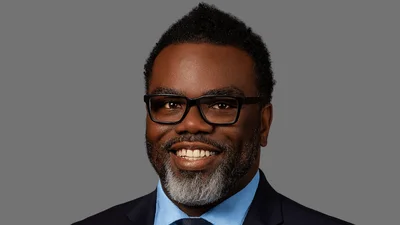Gov. Bruce Rauner’s "Turnaround Agenda" has done a 180, the Illinois Policy Institute suggested recently.
After campaigning and winning his leadership post on the agenda in 2014, Rauner has seen all 44 of its points ground away, Ted Dabrowski, the institute's vice president of policy, wrote on the group's website.
“Rauner has compromised over and over in an attempt to strike a deal, to the point of abandoning every reform he once sought,” Dabrowski wrote. “But no matter how much Rauner gave, House Speaker Mike Madigan (D-Chicago) never budged. But there is a silver lining. It should now be clear to everyone, including Rauner, that Madigan was never going to agree to a deal that included any actual reforms. The last two years have validated that Rauner should not have attempted to compromise in the first place.”
.jpg)
Rauner's plan resonated with voters tired of conditions in the state, including the country’s worst jobs recovery rate after the recession, sharply escalating pension costs and high taxes, Dabrowski wrote, adding that Rauner has steadily abandoned his agenda in the face of an intractable political environment.
“Three years later, things have changed dramatically,” Dabrowski wrote. “Illinoisans still want reform, but repeated budget stalemates, a media narrative that the governor is unwilling to compromise and pressure from special interest groups has whittled down Rauner’s ambitious reform agenda.”
Dabrowski wrote that with the looming new fiscal year, which began on July 1, and the state facing its third straight year without a budget, Rauner ceded to push back on several of his priorities and accepted weaker reforms in other areas in an attempt to reach a compromise with Democratic lawmakers.
“It’s gone from 44 priorities to zero,” he wrote. “Term limits on politicians: Gone. Collective bargaining reforms: Gone. Returning income tax rates to 3 percent: Gone.”
Rauner vetoed a bill that would raise the income tax to 4.95 percent but the House and Senate voted quickly to override.
In addition to the items that were dropped in favor of compromise, Rauner also agreed to watered-down versions of his pension and workers’ compensation reforms, Dabrowski argued.
The pension reform plan now under consideration is a two-prong approach to addressing the state’s skyrocketing pension debt. The plan seeks to reduce pension costs for current workers with a measure that Dabrowski believes is unconstitutional because the Illinois Constitution bars reducing pension benefits. The second prong seeks to address the pension costs of future workers by putting them on a hybrid pension and 401(k) plan, which Dabrowski criticized for continuing the growth of pension costs.
He also finds the compromised workers’ compensation reforms to be inadequate, arguing that they won’t improve the prospects of businesses laboring under high costs.
Further, Dabrowski said the property tax freeze that Rauner has made a mandatory part of any reform has become toothless, with loopholes for pension and debt costs.
Finally, Dabrowski argues that in spite of all that Rauner has given up to reach a compromise, his efforts have been unsuccessful.
“Springfield really does need to be shaken up,” Dabrowski wrote. “At this point, Rauner has only one real option left. He has to return to demanding what Illinoisans actually want: structural changes to how Illinois does business…The people of Illinois should be listened to – not the politicians, nor the media nor the special interest groups. Rauner should return to his original message and champion the wants and needs of ordinary Illinoisans.”




 Alerts Sign-up
Alerts Sign-up